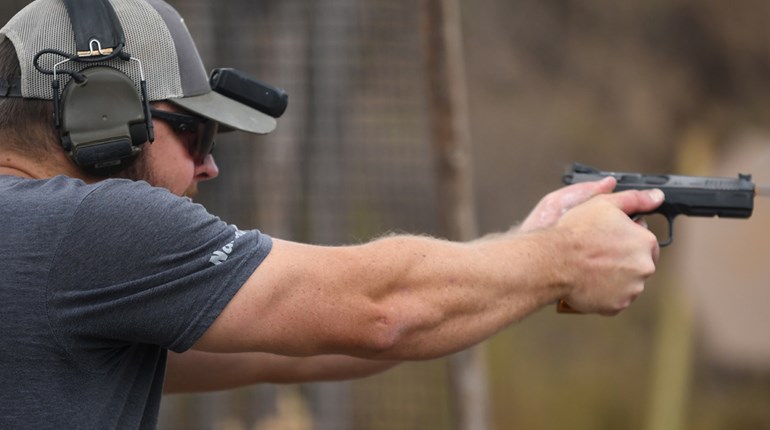
Late last week, the Wisconsin Institute for Life and Liberty filed a case against Acting Secretary of the Wisconsin Department of Natural Resources (DNR) Steven Little, to prohibit enforcement of Wis. Admin. Code NR 20.05(2). An odd section of the state code, NR 20.05(2) actually manages to violate the second amendment in regard to fishing, rather than hunting. Under its list of general restrictions, bullet point 2 of NR 20.05 states that no person may "Possess or control any firearm, gun or similar device at any time while on the waters, banks or shores that might be used for the purpose of fishing." This is, of course, a rather broad restriction, considering that not only is the place restriction overbroad, but nearly any gun could be considered capable of "fishing."
Passed in 1999, NR 20.05(2) was part of a rewrite that supposedly only contained small changes. Wisconsinites had traditionally kept "kit guns" in their tackle boxes to help them easily finish larger fish once they were brought alongside the boat. The 1999 rule change was the culmination of a campaign started in 1965 to demonize the practice, banning the means to accomplish it rather than the practice itself. In doing to, it has made countless individuals—not just fishermen—accidental lawbreakers, as they travel the state's waterways with a defensive or sporting firearm. Indeed, by the letter of the law, one can't travel to a favored turkey-hunting spot with a shotgun via canoe, or even hunt a riverbank without running afoul of regulations. That's not even to begin considering its potential implications for duck hunting, should it be stringently interpreted.
So why file the suit now, when this unconstitutional rule (which also appears to violate Wisconsin Section 25 on the right to keep and bear arms) has been in effect since 1999? In the wake of the Bruen decision, the law has become freshly clarified on firearm regulation. As there is no historical precedent for such a rule as NR 20.05(2) (prior to 1999), grounds for its prohibition are now clear.
While this makes it sound like a slam dunk, the current makeup of the Wisconsin Supreme Court yields this outcome less clear. The court flipped in 2022, putting leftists in control. Given a 2003 gutting of the aforementioned Section 25 in State v. Hamden, a travesty which has not yet been reversed, the court could rule against the plaintiff. At that point, it would need to be appealed to the U.S. Supreme Court, who have a limited docket each year given the number of cases pushed up to them.
Acting Secretary Little has 45 days from the filing to respond. Keep checking back with us here for updates on the story.


































